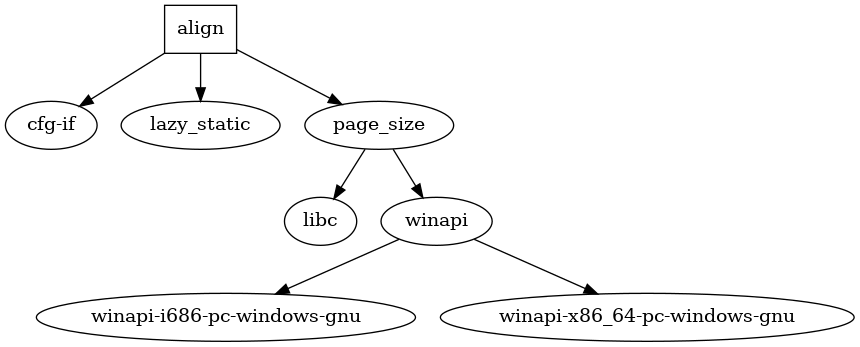| 0.0.1 |
|
|---|
#23 in #aligned
56KB
695 lines
align – strongly typed memory alignment guarantees
Some bytes just need to be aligned. Want to process bytes in batches of $8$ by interpreting them as u64? They must be $8$-byte aligned. Want to run SIMD operations on your bytes? You need to use special unaligned instructions and risk performance, or align them with target's requirements. Maybe your high-performance algorithm requires page alignment?
Validating that something is aligned is hard. align solves this problem by introducing strongly typed alignment types. To have your bytes aligned to a page boundary on the target architecture, all you need to do is:
use align::{alignment, AlignedBytes};
let bytes: [u8; 8] = [ 1, 2, 3, 4, 5, 6, 7, 8 ];
let aligned: AlignedBytes<alignment::Page> = bytes.into();
That's it. AlignedBytes<A> owns the bytes. By taking a reference you get &AlignedSlice<A>, which is basically the same as &[u8], only that its alignment is guaranteed by the type.
Status
Note that this crate is under active development. It contains the MVP of being able to talk about page-alignment and SIMD-block-alignment on x86_64.
Unsafety
This crate needs to use unsafe code due to the low-level pointer-twiddling nature of the domain. Two places where unsafe is required are:
- creating the
AlignedBytes, as it requires explicitly working with the allocator to get properly aligned bytes; - converting between
AlignedSliceand regular byte slices, which relies onrepr(transparent)of the former to bemem::transmute-able into the latter. - working internally on
AlignedBlockto maintain the type's invariants.
Reviews via cargo-crev are appreciated.
Dependencies
Dependencies graph generated by cargo-deps:

Or as the output of cargo tree:
align v0.1.0
├── cfg-if v1.0.0
├── lazy_static v1.4.0
└── page_size v0.4.2
└── libc v0.2.125
Justification
cfg-if– used to configure conditional compilation in a more readable manner, especially determining SIMD block size. It's lightweight and contains no unsafe code.lazy_static– used to lazily validate and cache the page size.page_size– used to get the page size foralignment::Page.
Dev
cargo-hack– used for more robust testing by compiling and running the code for the feature powerset.
crev
It is recommended to always use cargo-crev to verify the trustworthiness of each of your dependencies, including this one. Reviews are appreciated.
To add me to your WoT trust my crev-proof repo:
cargo crev trust id https://github.com/V0ldek/crev-proofs
Dependencies
~235KB